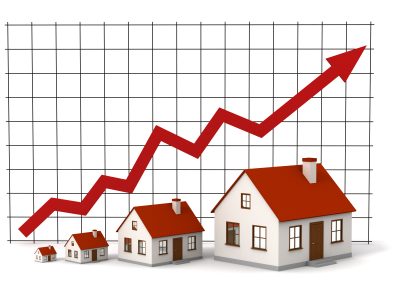| Day | Opening Hours |
|---|---|
| Monday | 8:30am - 6pm |
| Tuesday | 8:30am - 6pm |
| Wednesday | 8:30am - 6pm |
| Thursday | 8:30am - 6pm |
| Friday | 8:30am - 6pm |
| Saturday | 9:00am - 3pm |
The annual rate at which UK house prices are increasing moved into double digits in April, according to figures from Nationwide.

The annual rate at which UK house prices are increasing moved into double digits in April, according to figures from Nationwide.
Nationwide's latest house price index showed UK prices have increased by 10.9% in the past 12 months, to an average of £183,577. The monthly rate of growth picked up, with a rise of 1.2% following March's 0.5% increase.
The annual rate of inflation is the biggest rise since June 2007, before the credit crunch, and the building society warned homes could get further out of buyers' reach.
"Earnings growth is beginning to pick up, with wage increases finally outpacing the rise in the cost of living in February," said Nationwide's chief economist, Robert Gardner, "Nevertheless, house price growth is outstripping income growth by a wide margin. The risk is that unless supply accelerates significantly, affordability will become stretched."
Commenting on the figures, chief executive of mortgage broker SPF Private Clients Mark Harris said: “With house-price growth across the country over the past 12 months hitting double digits for the first time in four years, the housing market is showing no signs of slowing, according to Nationwide. Despite the Land Registry reporting yesterday that house prices have started to wobble, as far as the lender is concerned the pace of house-price growth is accelerating.
“London continues to power ahead with prices around 20% higher than pre-crisis levels. This is fuelled by growing consumer confidence and the availability of cheap mortgage rates, encouraging more buyers to take that first step onto the ladder.
“Despite rising house prices, affordability is not an issue, and with the new Mortgage Market Review rules finally kicking in last week, is not likely to become one as lenders take a forensic approach when deciding how much to lend. There may be a slowdown in lending over the next month or so as the new rules bed in but this is likely to be nothing more than a blip, given the pent-up demand to buy.”